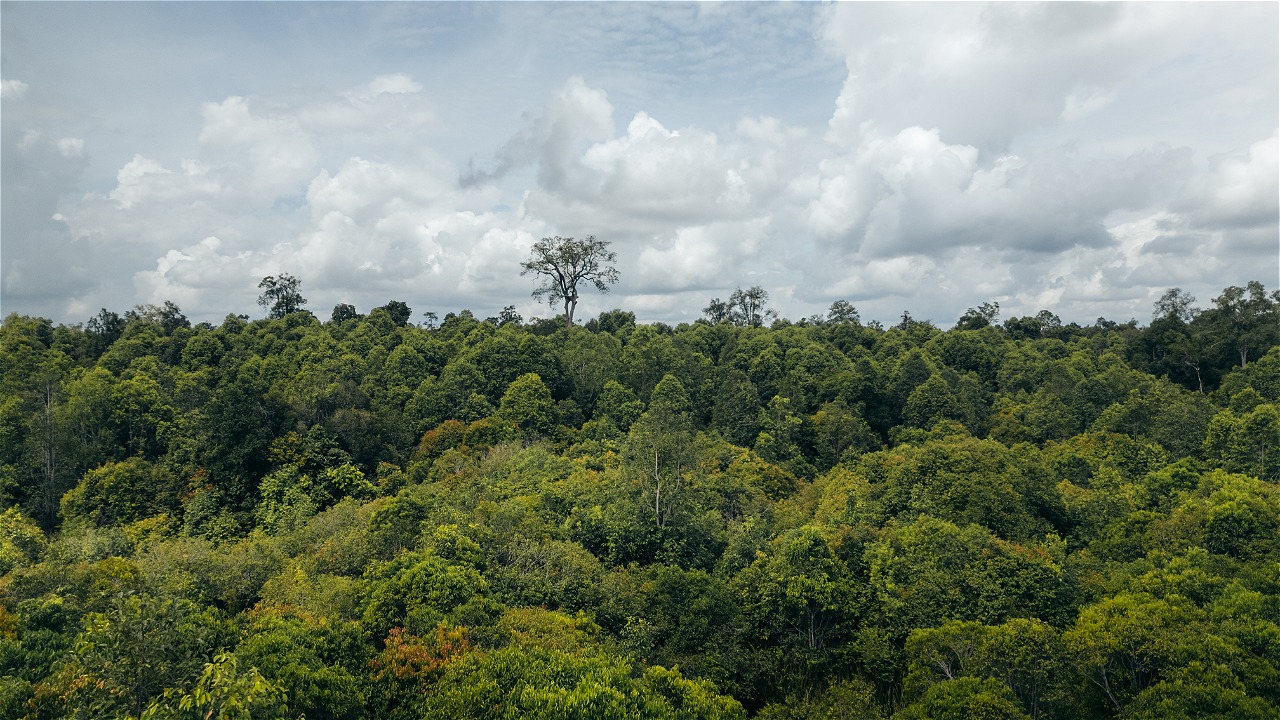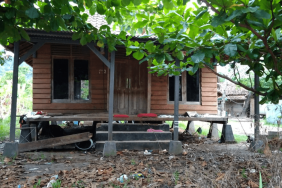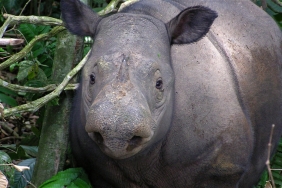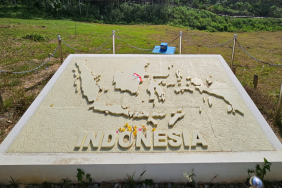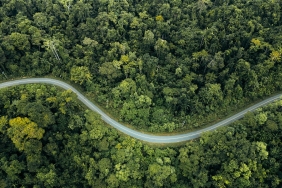MORE FUNDING NEEDED FOR HOB INITIATIVE
6 September 2016, Bandar Seri Begawan: WWF urges the private sector operating inside the Heart of Borneo (HoB) to support the HoB’s objectives by incorporating conservation and sustainable development into their respective agendas.
Making this call at the 10th Heart of Borneo (HoB) Trilateral Meeting – HoB Partners Dialogue, WWF Heart of Borneo Programme Chairman Dato' Dr Dionysius Sharma said private companies operating in the HoB area should be encouraged to support the HoB Initiative. As such, the governments should welcome any organisation that desires to support the Initiative.
“The key is to bring to the table issues of mutual concern and benefit to the governments and stakeholders. For corporations and businesses, you could consider environmental conservation as part of your corporate social responsibility programmes.”
“Donating or contributing will be for a good cause as protecting our natural capital is crucial to ensure survival of the human race in the long run. Protecting the planet takes collective efforts, and WWF calls everyone to play their part,” he said at Ministry of Primary Resources and Tourism on Tuesday.
Dr Dionysius said the current funding that WWF received to support the Initiative is restricted to civil society and this therefore, limits the scope of work that can be implemented.
He said WWF plans to work on joint-project proposals with various government agencies for consideration by the HoB member countries to expand the scope of collaboration that enables government agencies to receive development funds and achieve greater conservation wins.
“We hope that the HoB Technical Committee would consider such joint-proposals and WWF could then identify development agencies and funding institutions around the world that could consider such proposals. Towards that end, this collaboration would be in the form of bilateral government-to-government technical cooperation projects,” he elaborated.
As for WWF, he said, the organisation’s commitment to support the HoB process would continue and hoped that everyone would join in this endeavour to make the area a better place to live in, both for mankind and environment.
Dr Dionysius said the WWF HoB Programme focuses on six priority areas that are vital for overall conservation of biodiversity and protection of ecosystem services in the island. Of the six priority areas, three are located along international borders and form a main part of the HoB Corridor Project Implementation.
The first is the elephant landscape spanning south of Sabah and North Kalimantan. Our work is to develop a comprehensive elephant conservation plan that includes setting aside wildlife corridors that link protected forest, conservation areas, riparian zones and important browsing grounds through forest management areas and plantations.
The second is the landscape covering the headwaters of several rivers in Sabah, Sarawak and North Kalimantan that aimed to have well managed forest landscapes that will provide ecological connectivity linking Brunei’s Sungai Ingei Conservation Forest and Ulu Temburong National Park; to Sarawak’s Gunung Mulu, Gunung Buda and Pulong Pau National Parks; and onwards to Sabah’s Crocker Range National Park as well as to North Kalimantan’s Kayan Mentarang National Park.
The third priority area connects Sarawak to West Kalimantan by incorporating orangutan conservation into sustainable development as the basis for connectivity. This transboundary project provides the orangutan connectivity for the Batang Ai National Park and Lanjak Entimau Wildlife Sanctuary in Sarawak with that of Betung Kerihun and Danau Sentarum National Parks in West Kalimantan.
Other partners who spoke at the dialogue are Borneo Initiative Jakarta Programme Director Wim Ellenbroek, Borneo Adventure Partner Robert Basiuk, Alas Kusuma Group Jakarta Head of Environment and Certification Ida Bagus Wiradnyana Putra and ADB Jakarta National Coordinator Tonny Soehartono.
During the two-day trilateral meeting, WWF in Indonesia and Malaysia held a joint exhibition together for the first time to showcase some of the organisation’s work with local communities in support of the governments’ efforts in promoting the HoB Initiative i.e. sustainable livelihoods and responsible stewardship towards the natural capital. Themed on ‘Colours of HoB Communities’, the exhibition comprises three parts of photo and poster exhibitions, and display of local communities’ products.
Meanwhile, the HoB Trilateral Meeting also acknowledged the establishment of the Forum of Local Indigenous Communities of the HoB and the award of the Equator Prize 2015 to FORMADAT, the Alliance of the Indigenous Peoples of the Highlands of Borneo (Indonesia – Malaysia) for outstanding local achievements in advancing sustainable development solutions for people, nature and resilient communities. WWF-Indonesia and WWF-Malaysia are partners of FORMADAT towards achieving sustainable development in the highlands of Heart of Borneo.
- Ends -
About WWF-Indonesia
WWF-Indonesia is an independent national conservation organization and is part of a global network of WWF. It started out in 1962 with research on Javan rhino in Ujung Kulon and today, it has conservation work in 28 regions in 17 provinces from Aceh to Papua. Supported by approximately 500 staff, WWF-Indonesia works with the government, local communities, private sector, NGOs, civil society and the public at large. From 2006 to 2013, WWF-Indonesia has about 64,000 supporters in the country. For more information, visit www.wwf.or.id
About WWF-Malaysia
WWF-Malaysia (World Wide Fund for Nature-Malaysia) was established in Malaysia in 1972. It currently runs more than 90 projects covering a diverse range of environmental conservation and protection work, from saving endangered species such as tigers and turtles, to protecting our highland forests, rivers and seas. The national conservation organization also undertakes environmental education and advocacy work to achieve its conservation goals. Its mission is to stop the degradation of the earth’s natural environment and to build a future in which humans live in harmony with nature, by conserving the nation’s biological diversity, ensuring that the use of renewable natural resources is sustainable, and promoting the reduction of pollution and wasteful consumption. For latest news and media resources, visit http://www.wwf.org.my/media_and_information/media_centre/
About Heart of Borneo (HoB)
The Heart of Borneo (HoB) is a 22-million hectare landscape of natural capital with intact forests that is home to a diverse group of wildlife species such as orangutan, clouded leopard, pygmy elephant and Sumatran rhino. Apart from being one of WWF’s global priority conservation areas, HoB is also an important socio-economic development area for the livelihoods of the local and indigenous people.
The HoB Initiative is a transboundary collaboration of the three Governments of Brunei Darussalam, Indonesia and Malaysia to conserve and sustainably manage the biodiversity, ecosystems and natural resources in the HoB. Since the signing of the joint declaration by the three countries in 2007, WWF continues to play a key role in supporting the three Governments implement the Initiative, enhancing collaboration as well as implementing conservation programmes across the landscape of Borneo. In collaboration with key partners - governments, private sector and civil society, donor communities, institutions with technical expertise, and media, various conservation projects are being led by the WWF’s HoB Programme, a collaboration between WWF-Indonesia and WWF-Malaysia with support from WWF offices around the world.
Note to the media:
1) All quotes are to be attributed to the designated persons quoted in this media release.
2) Should you need more information, please see the details below but please note that this person is for contact purposes only and is not the organisation's authorised spokesperson, so we would appreciate it if this name is not printed in the article.
Nuraini Soulisa
Tel: +603 7450 3773 (Malaysia) / +673 8255962 (Brunei)
Email: [email protected]

